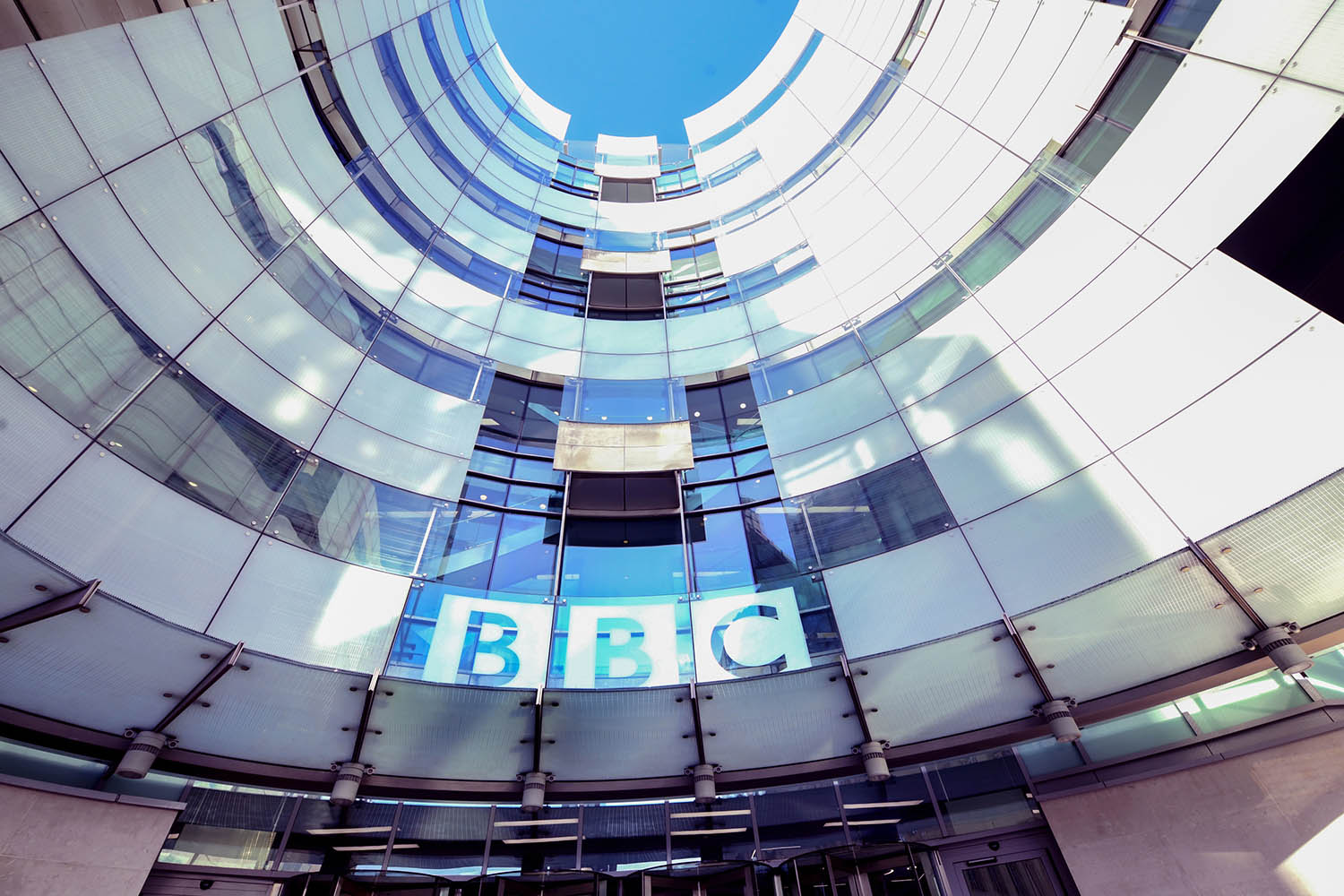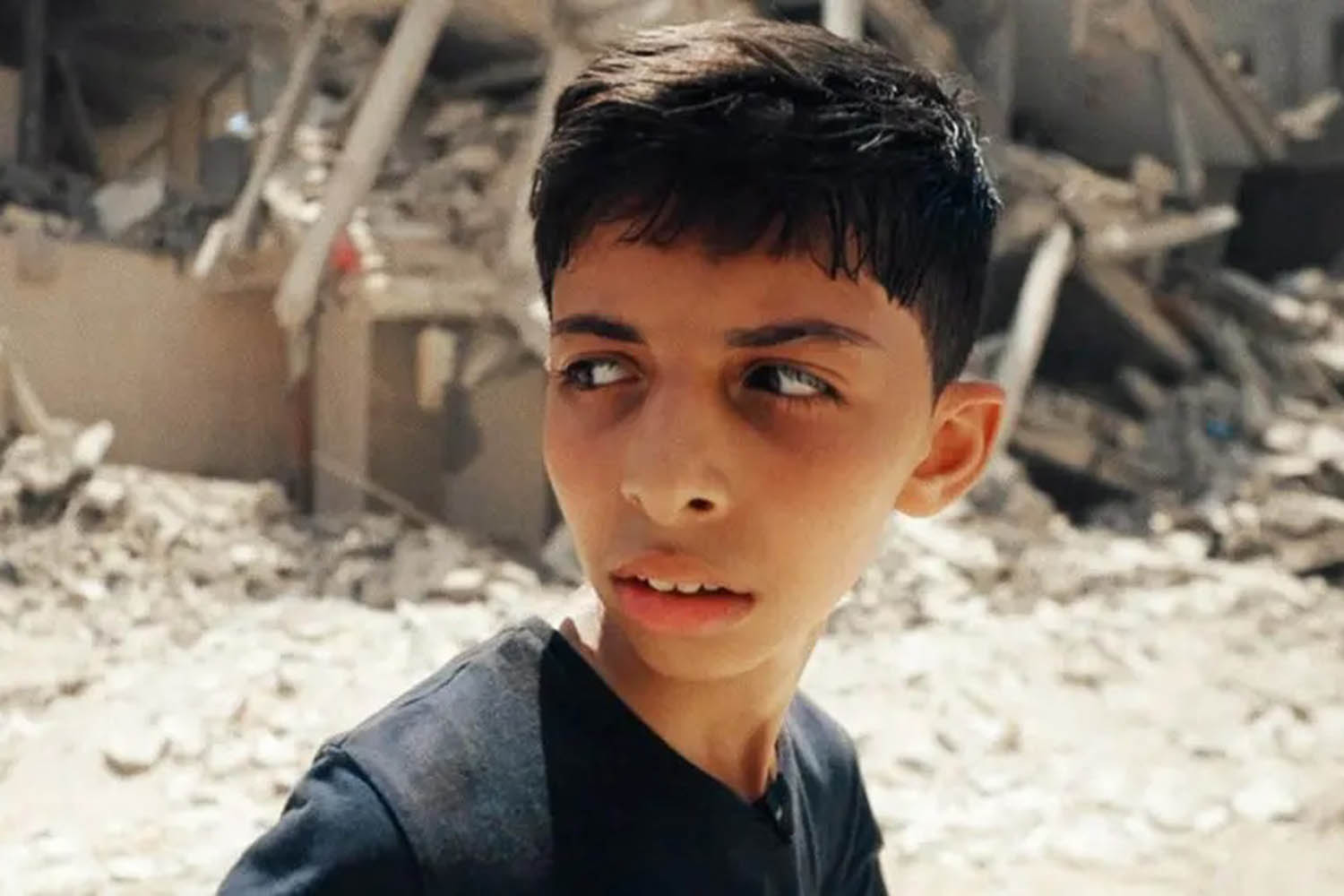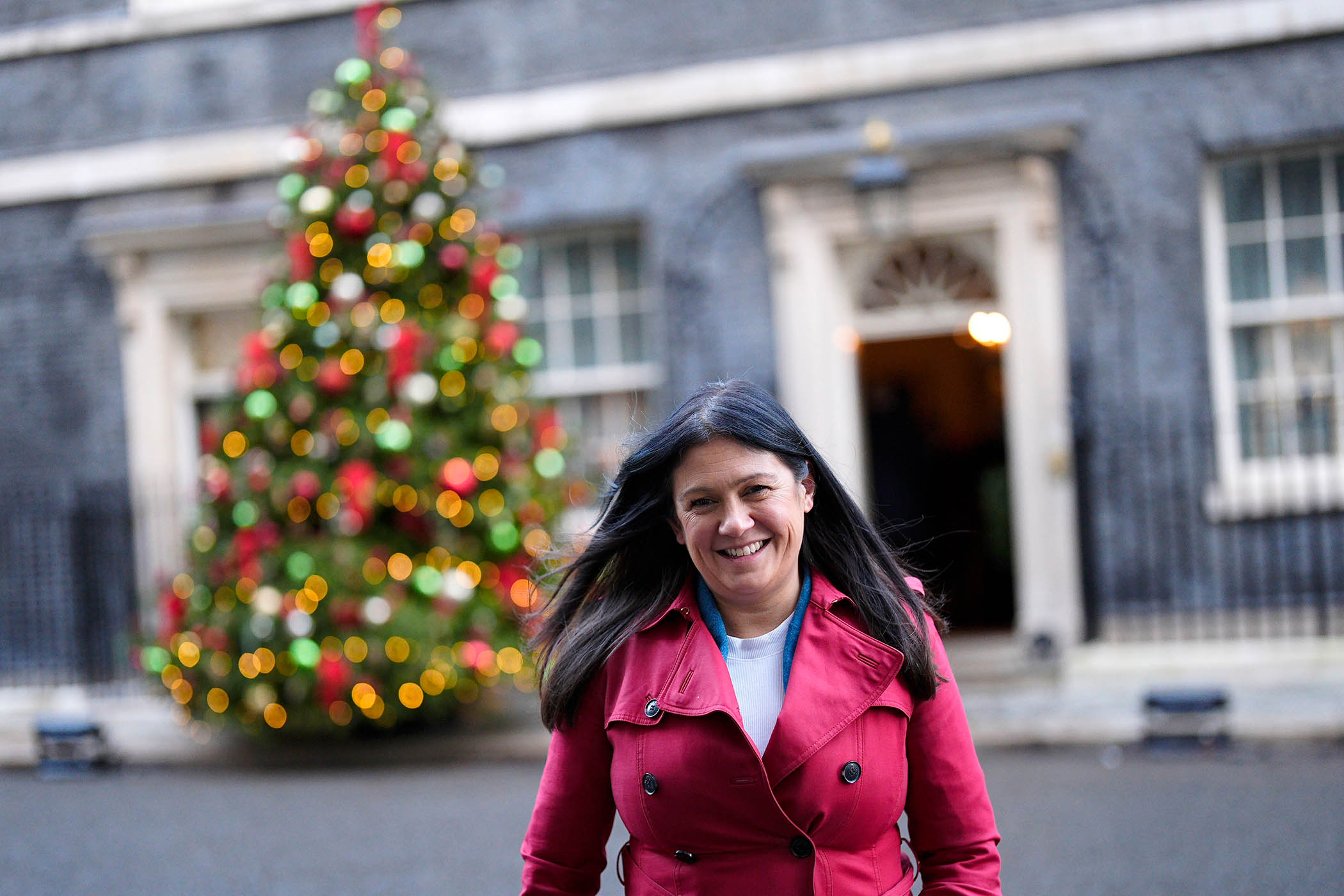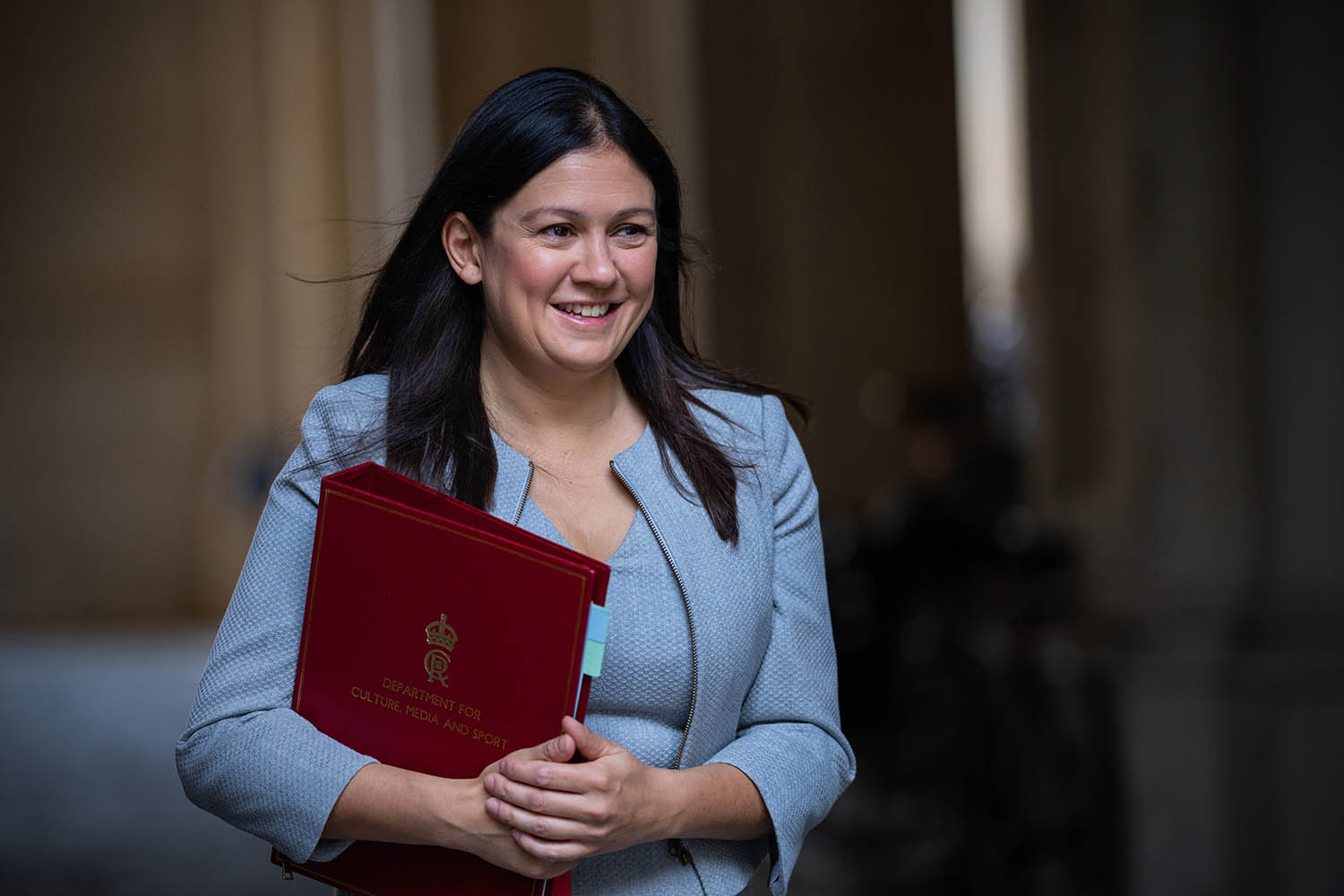“Ramita, oh, how brilliant that you’re here.” The senior BBC executives could not mask their surprise that Ramita Navai, the reporter of the film they had commissioned on the destruction of Gaza’s health service, had turned up to a meeting they had not invited her to.
They had not invited her because, as it turned out, the point of the meeting was to set her up as the fall guy.
It was early May. We were executive producers of a documentary, Gaza: Doctors Under Attack, directed by Karim Shah. On the agenda for the meeting at new Broadcasting House was the BBC’s decision to pull the film for the final time, days before its scheduled broadcast.
This was the sixth time the BBC had stopped the release of our film, a year-long investigation into Israel’s targeting of Palestinian doctors and the healthcare system in Gaza.
The film had been completed, delivered, approved by lawyers and editors, and praised by the bosses, but then its release began to be repeatedly delayed.
Related articles:
The reasons given for the delays we faced in fact had little to do with our film and more to do with another one: How to Survive a Warzone. An internal investigation had been launched after it emerged that the child who narrated the film was the son of a junior Hamas minister in Gaza.
Now the BBC was anxious because it had another Gaza film on its hands: one showing that doctors, medics and hospitals were being targeted and killed by Israel, made by a production company working hand in glove with two of its own journalists.
Our film had been, in effect, shelved, but after two months of “inadvertently leading us on” (their words), one of the executives in this May meeting laid out a plan for a possible solution: to downgrade Ramita’s role as correspondent to that of a “contributor” or “third party reporter”.

We were stunned, but then the meeting took a stranger turn. The executives said the problem with the earlier film, How to Survive a Warzone, was its narration by a child whose father was a Hamas official. So we asked: were they comparing Ramita, our narrator – an award-winning investigative journalist – to the 14-year-old son of a Hamas minister?
After a moment’s silence, they seemed to realise how ludicrous this comparison was. Eventually, we were told some of Ramita’s tweets had been “one-sided”. There had been too many retweets of posts by organisations reporting the deaths and suffering of Palestinians and not supportive enough of the other side, they said.
We were later told by multiple sources within the BBC that the decision to downgrade Ramita eight months after the film had been commissioned had come from the top of BBC News, and of the BBC itself. When approached for comment, the BBC did not deny this and said it had “concerns about some of Ms Navai’s social media activity”.
Even so, at the end of the meeting, one of the execs walked us out, apologising profusely. “I really do admire your work and have loved working with you guys, and I am so sorry, we shouldn’t have suggested that idea.”
The attacks of 7 October were horrific, targeting first young people at a rave and then the kibbutzim along the southern border. Watching them, we all felt a wave of fear and revulsion. We also felt trepidation. Israel’s rightwing government had sworn revenge and cited biblical massacres. But no one expected what was to follow; the fastest killing of civilians this century, with no one spared, not even children, women, journalists and those meant to help save the lives of the injured – doctors and medics. Military assaults on hospitals or health infrastructure are strictly forbidden under international law; they are war crimes.
By May 2024, when we approached BBC Panorama to make a film, not only had there been hundreds of attacks, but hundreds of health workers had been killed. Criticisms of the BBC’s coverage of Gaza were meanwhile growing. These included the claim that it was giving false equivalence in focus and airtime to 7 October and its aftermath, even though there were now tens of thousands of dead Palestinians. The BBC’s coverage was not showing what people could see on their phones: the killing of children, the targeting of hospitals, the erasing of entire families.
For the record, the BBC rejects the idea that it is anything less than independent. A spokesperson said it “holds itself to the highest standards of impartiality” – and also that the BBC believed our material “was important public interest journalism which should be shown”.
After two months working with Panorama, we were paid development money in lieu of a contract. All was good. But then we received a call from one of the executives that the commission would have to be passed up the food chain and that those at the top of BBC News were “very jumpy and paranoid” about Gaza and any commissions had to be referred to the top level of BBC News.
The next day we received a call. The commission was dropped because, a sheepish Panorama executive said, they had to put out three post-election films in October 2024, the month we had agreed on for transmission.
An executive called and told us that those at the top of BBC News were ‘very jumpy and paranoid about Gaza’
We took the film to the investigatory unit BBC Eye. It gave us development money almost immediately and we began working with its team. We travelled to Israel and Egypt to interview doctors, whistleblowers, lawyers and human rights workers. The testimony of doctors and medics who had lost loved ones was searing.
We had numerous script meetings to ensure our film complied with BBC standards. In one in early February at which we took detailed notes, a BBC editorial policy representative said he thought a UN report on hospital attacks cited in our film should not be included because, he said, “the UN is not a trusted independent organisation”. The same had been repeatedly said about Amnesty International.
Later in the same meeting, we discussed another request from the BBC; that we use the testimony of two high-profile hospital directors who had been detained and allegedly tortured by Israeli forces.
The use of interviews with prisoners under duress is not only a breach of the Geneva conventions, but breaks Ofcom’s code. We explained this at length in meetings and by email, citing numerous examples, and in the end we won the argument. The BBC denies there was ever an intention to use a clip of the hospital directors, but we can demonstrate otherwise.
Script meetings were also dominated by references to what “Collier” might say – referring to David Collier, a social media activist who had discovered the omissions of the previous film. In one editorial meeting, after viewing our film for the first time, a senior BBC reporter told us we should not use certain information as this would not be acceptable to Camera, a pro-Israel media monitoring organisation.
In February, our film’s release was delayed to make way for another film the BBC had about Gaza, narrated by two children, which had to broadcast before ours. We complained, but were told that the top brass had watched this film and thought it was the best film about Gaza they had ever seen. It would be “a gamechanger”.
Within days of it being broadcast, that film, How to Survive a Warzone, was mired in controversy and taken off BBC iPlayer. The fear around the subject of Gaza, which had briefly turned to pride in the film, quickly returned, and we feared for our film.
After How to Survive a Warzone was withdrawn, we were given multiple rolling and movable dates. These tallied directly with dates that sources on an internal investigation into How to Survive a Warzone – a report by Peter Johnston, the BBC’s director of editorial complaints and reviews – were telling us their report would be out on. For 10 weeks we argued with senior managers and executives that they should not allow our film to be chewed up by an investigation into another one; for 10 weeks, they said this was not what was happening.
In late April, a conference call confirmed to us that our film was, in fact, being delayed by the Johnston report. When we refused its latest solution, to take Ramita off the film, the BBC finally made it clear it was not going to broadcast it and began the process of releasing the film back to us. It would broadcast clips of the film on its news output but we would keep the film for our own release.
With one catch. Just as we thought we had reached a release agreement with the BBC, it inserted a gagging clause in the contract, stipulating that neither we nor any third party buying the film would issue any disparaging statements about the BBC and/or “do not suggest or imply that any version of the programme (a) was authorised or approved by the BBC, or (b) would not be broadcast or published by the BBC.
The BBC denies this was a gagging clause, saying it was to prevent the film being described as a BBC film when it was not one. Either way, we could not sign it. The pressure grew as Ben de Pear was about to appear at the Sheffield documentary festival, where he called the BBC’s director general, Tim Davie, a “PR man who doesn’t understand journalism”.
Ramita appeared on the Today programme to talk about Israel’s bombing of Iran. When the presenter Amol Rajan said her description of Israel as a rogue state committing war crimes and ethnic cleansing and killing Palestinians was an “opinion”, she said it was not her opinion but an assessment based on documentary evidence collected for the BBC.
The BBC put out a statement saying it had decided the film could not now be shown because of “perceived partiality”. This was not true; it had dropped the film seven weeks earlier and at this point was only planning to show short clips of it.
Approached for this article, the BBC stated further that, after Ramita’s appearance on Today, “we were left with no choice but to walk away”. To be clear, what it was abandoning by this point was three one-minute clips.
Why did our documentary – which has since been broadcast by Channel 4 and praised by reviewers – not run on the BBC? Hundreds of people have contacted us since it went out, including dozens from within the BBC, and many of them have said that we “are on the right side of history”.
As news and current affairs journalists, we do not want to be on the right side of history; we want to be on the right side of now.
The BBC said Ramita had not been invited to the final meeting thinking she was abroad, and denied the film had been formally approved for broadcast. A spokesperson said: “We tried very hard to find ways to tell the doctors’ stories on our platforms, despite the ongoing Peter Johnston review and our concerns about some of Ms Navai’s social media activity. However, after she appeared on the Today programme and called Israel a ‘rogue state that’s committing war crimes and ethnic cleansing and mass murdering Palestinians’ it was impossible for the BBC to broadcast the material without risking our impartiality.”
This article has been amended since publication.
Photographs by BBC/Hoyo Films and Ian West/PA Wire


